Given their hands on experience with technical ceramics, it is not surprising that our engineers provide a significant amount of thought leadership in the field. See some of our latest technical ceramic white papers, below:
Technical Ceramics White Papers
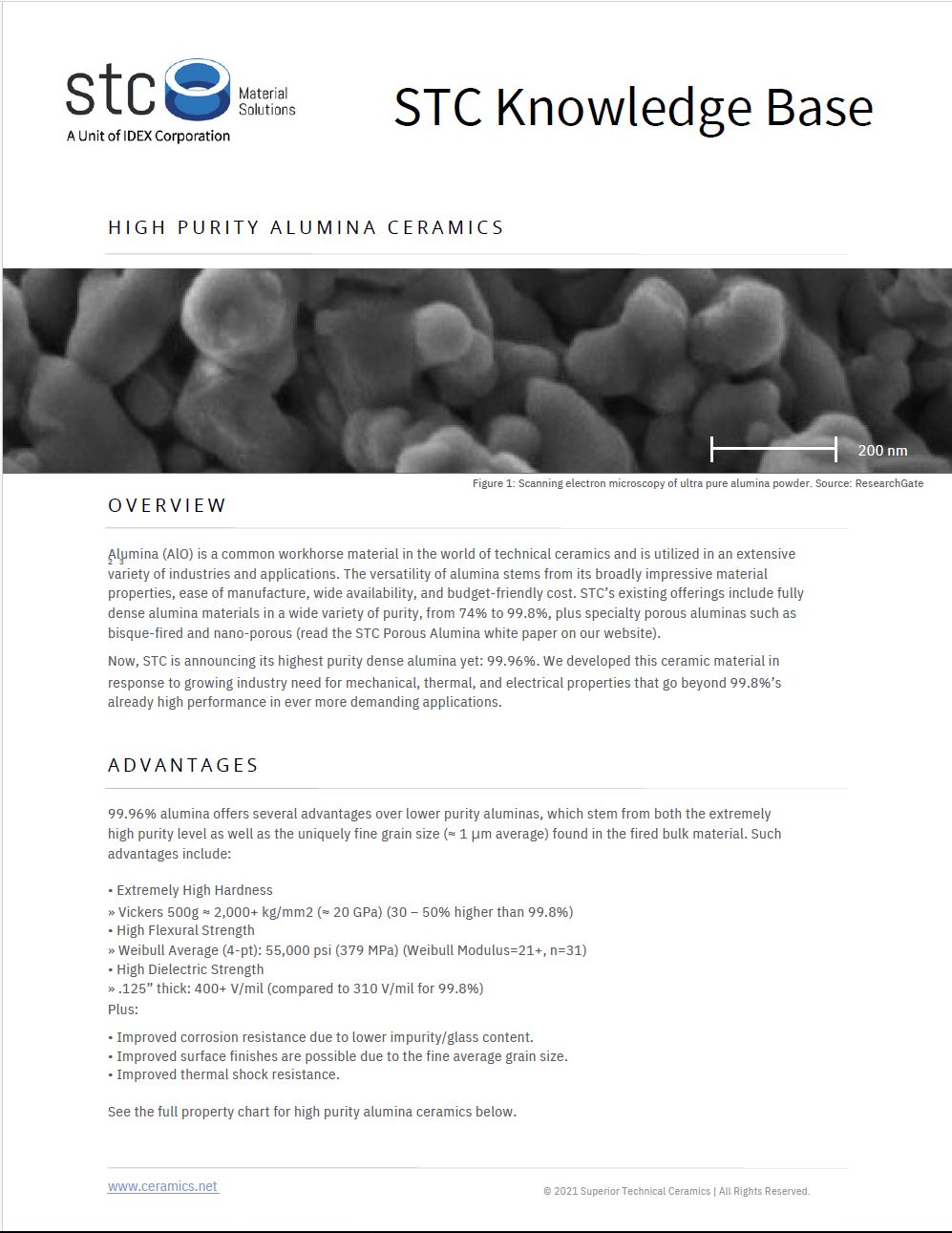
High Purity Alumina Ceramics
A whitepaper discussing the properties of STC’s 99.96% pure alumina, our highest purity and densest alumina yet.
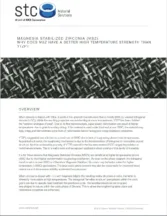
Magnesia Stabilized Zirconia (MSZ)
A whitepaper answering the question “Why does MSZ have better high-temperature strength than YTZP?”
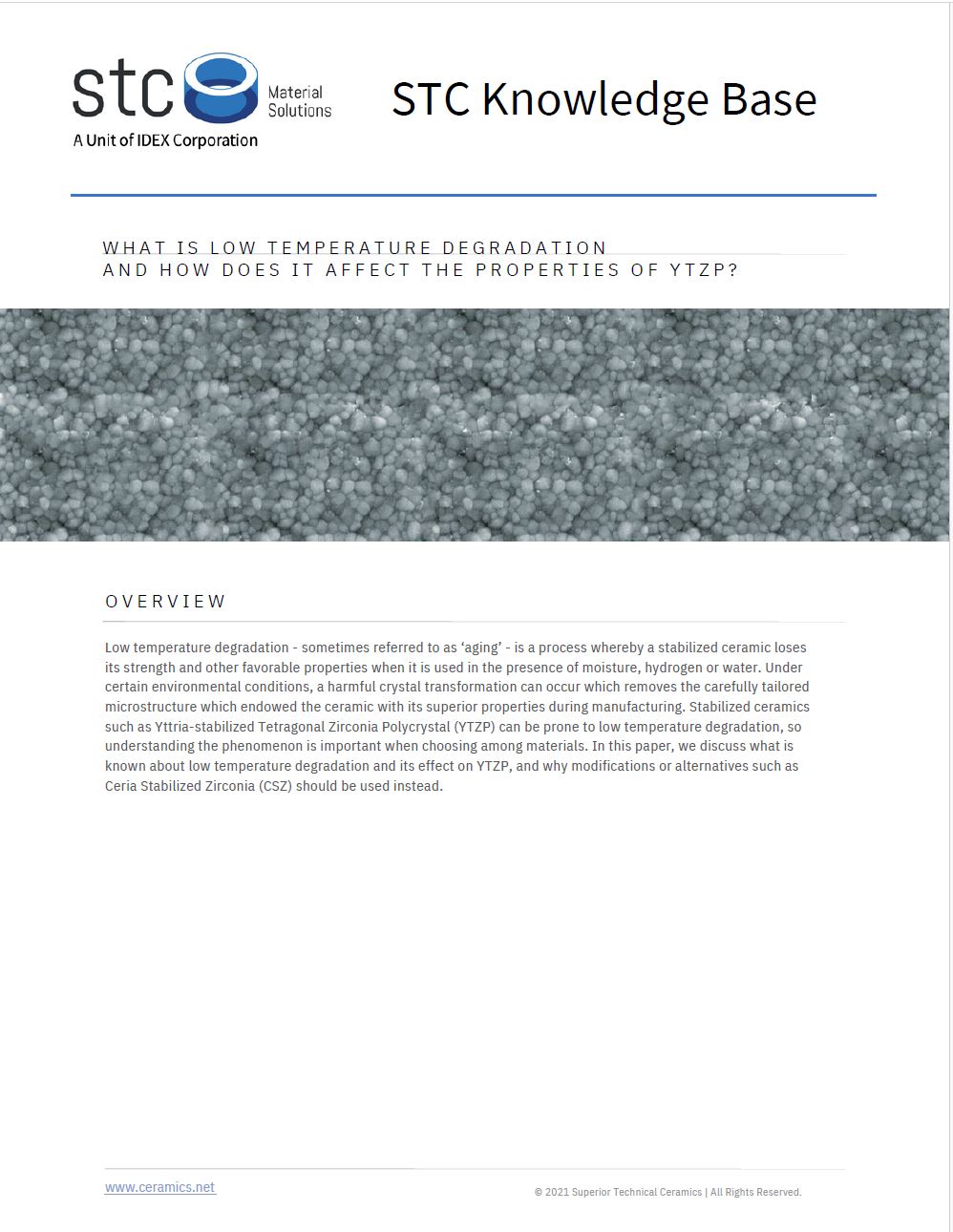
YTZP Low Temperature Degradation
A whitepaper answering the question “What is low temperature degradation and how does it affect the properties of YTZP?”
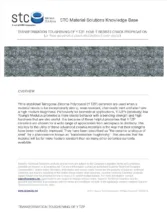
YTZP Transformation Toughening
A whitepaper exploring the unique transformation toughening characteristics of YTZP, leading to superior crack resistance.
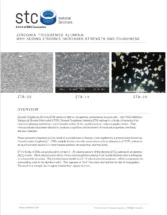
Zirconia Toughened Alumina (ZTA)
A whitepaper discussing how the addition of Zirconia toughens Alumina-based ceramics, increasing strength and toughness.
Certifications
Click below to view our Quality Certifications, Registrations and Compliance

ITAR Registered

ITAR Registered
STC was certified ITAR registered starting July 2007.
The International Traffic in Arms Regulations (ITAR) is a set of United States government regulations that control the permanent and temporary export and import of defense-related articles and services.
View our ITAR Registration Letter
The ITAR’s purpose is to protect U.S national security and advance U.S foreign policy goals. The Department of State Directorate of Defense Trade Controls (DDTC) is responsible for the interpretation and enforcement of ITAR.
ITAR ensures that information and materials regarding defense and military related technologies are only shared with United States individuals or foreign (non-US) nationals granted special authorization by the Department of State.
United States organizations and/or individuals face severe fines if they are found to have provided access to ITAR regulated defense articles, services or information to unauthorized foreign entities.
ITAR is available from the Government Printing Office (GPO) as an e-document or as part of the annual hard copy publication of the Code of Federal Regulations (CFR) which includes all amendments made to the ITAR since the last annual publication. You can find out more about ITAR by visiting the U.S. Department of State website.

Reach Compliant

STC Reach Compliance Statement
Superior Technical Ceramics (STC) makes ceramics, and sells no chemical substances, but is a supplier to EU companies and companies supplying into the EU. STC has been asked by numerous customers to confirm that our ceramics are Reach Compliant.
STC supports the goals of REACH, which are consistent with our own commitment to promote the responsible manufacturing, use, and handling of chemicals. After a complete bi-annual review of the materials used in our parts and the manufacturing process, we can advise you, our customers, that STC is Reach compliant to the 240 substances now on the ECHA list.
https://echa.europa.eu/candidate-list-table
March 4, 2025
Understanding REACH
REACH is a regulation of the European Union, adopted to improve the protection of human health and the environment from the risks that can be posed by chemicals, while enhancing the competitiveness of the EU chemicals industry. It also promotes alternative methods for the hazard assessment of substances in order to reduce the number of tests on animals.
REACH places the burden of proof on companies. To comply with the regulation, companies must identify and manage the risks linked to the substances they manufacture and market in the EU.
REACH stands for Registration, Evaluation, Authorization and Restriction of Chemicals. It entered into force on 1 June 2007.
This letter is to confirm that the products/articles listed below have been evaluated against Regulation (EC) 1907/2006 of the European Parliament, “Registration, Evaluation, and Authorization of Chemicals (REACH), as interpreted by EU Court of Justice Decision C-106/14 of 10 September 2015. The compliance status of the product(s) was confirmed based on the latest 235 substances as updated by ECHA on June 14, 2023. Please refer to the following ECHA list for the most current candidate list of substances.
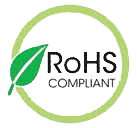
RoHS Compliant

STC RoHS Compliance Statement
Superior Technical Ceramics (STC) makes no stand-alone electronic or electrical products but is proud to be a subcontractor of ceramics used in electronic and electrical products. STC has been asked by numerous customers to confirm that our ceramics are RoHS Compliant.
After a complete bi-annual review of the materials used in our parts and the manufacturing process, we can advise you, our customers, that STC is RoHS & RoHS 3 compliant.
March 4, 2025
RoHS stands for Restriction of Hazardous Substances and impacts the entire electronics industry and many electrical products as well. The original RoHS, also known as Directive 2002/95/EC, originated in the European Union in 2002 and restricts the use of six hazardous materials found in electrical and electronic products. All applicable products in the EU market from July 1, 2006, must pass RoHS compliance.
Directive 2011/65/EU was published in 2011 by the EU, which is known as RoHS-Recast or RoHS 2. RoHS 2 includes a CE-marking directive, with RoHS compliance now being required for CE marking of products. RoHS 2 also added Categories 8 and 9 and has additional compliance recordkeeping requirements.
Directive 2015/863 is known as RoHS 3. RoHS 3 adds four additional restricted substances (phthalates) to the list of six.
EU RoHS specifies maximum levels for the following 10 restricted substances. The first six applied to the original RoHS while the last four were added under RoHS 3, which took effect July 22, 2019.
- Cadmium (Cd): < 100 ppm
- Lead (Pb): < 1000 ppm
- Mercury (Hg): < 1000 ppm
- Hexavalent Chromium: (Cr VI) < 1000 ppm
- Polybrominated Biphenyls (PBB): < 1000 ppm
- Polybrominated Diphenyl Ethers (PBDE): < 1000 ppm
- Bis(2-Ethylhexyl) phthalate (DEHP): < 1000 ppm
- Benzyl butyl phthalate (BBP): < 1000 ppm
- Dibutyl phthalate (DBP): < 1000 ppm
- Diisobutyl phthalate (DIBP): < 1000 ppm
RoHS 3 (EU Directive 2015/863) adds Category 11 (catch-all) products and adds four new restricted substances – all phthalates. The four phthalates are mainly used as insulation plasticizers and are on the REACH list of SVHC (Substances of Very High Concern). The expanded list for RoHS 3 is thus as follows:
- Cadmium (0.01 %)
- Lead (0.1 %)
- Mercury (0.1 %)
- Hexavalent chromium (0.1 %)
- Polybrominated biphenyls (PBB) (0.1 %)
- Polybrominated diphenyl ethers (PBDE) (0.1 %)
- Bis(2-ethylhexyl) phthalate (DEHP) (0.1 %)
- Butyl benzyl phthalate (BBP) (0.1 %)
- Dibutyl phthalate (DBP) (0.1 %)
- Diisobutyl phthalate (DIBP) (0.1 %)

Conflict Minerals Policy

STC Material Solutions Conflict Minerals Policy
STC Material Solutions is committed to ensuring that its products and product components are responsibly manufactured. Vendors are expected to ensure that products supplied to STC Material Solutions do not contain metals derived from “conflict minerals” – tin, tantalum, tungsten and gold, or their derivatives – that directly or indirectly finance or benefit armed groups in the Democratic Republic of the Congo (or any adjoining country). To promote compliance with this standard, Vendors are expected to:
- Establish appropriate policies, data exchange methods, due diligence frameworks, risk mitigation strategies and systems designed to accomplish the goal of supply chain transparency. These steps should be consistent with an internationally recognized due diligence framework, such as the OECD Due Diligence Guidance for Responsible Supply Chains of Minerals from Conflict-Affected and High-Risk Areas and its applicable supplements (see http://www.oecd.org/daf/inv/mne/mining.htm).
- Communicate their own policies and expectations down to their sub-suppliers, reflecting a commitment to responsible sourcing of minerals.
- Establish appropriate objectives and targets, regularly measure, and assess sub-supplier performance, and practice continual improvement in pursuit of “conflict free” supply chains.
- Work with sub-suppliers to attain traceability of conflict minerals to the smelter level by asking them to submit their policies to STC Material Solutions.
- Promptly provide accurate and appropriate reporting to STC Material Solutions when requested regarding the smelters and facilities within Vendor’s minerals supply chain, and the steps taken to investigate the source and chain-of-custody of such minerals, and to address “red flags” indicating potential exploitation by armed groups.

